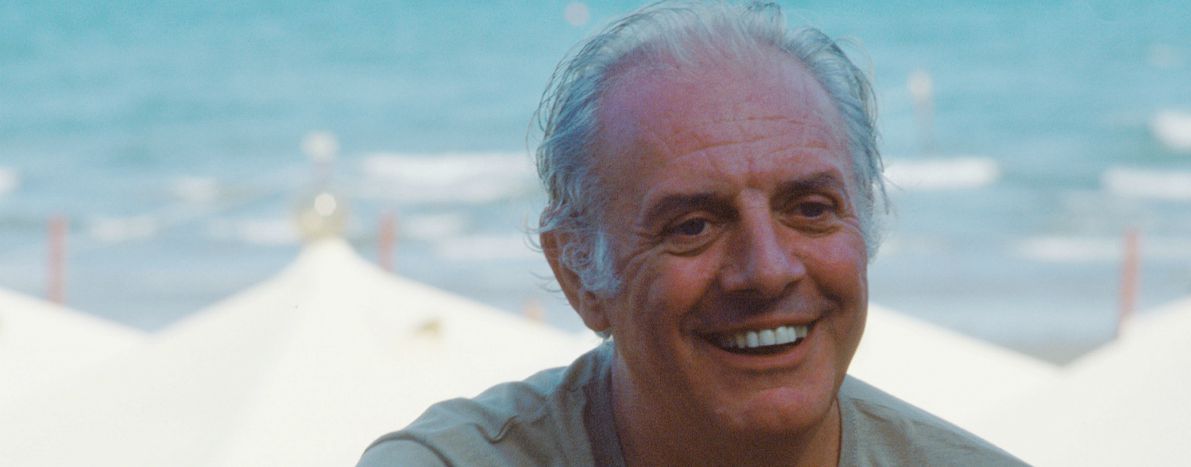
My encounter with Dario Fo in the Milanese rain
Published on
Translation by:
Jacob DaviesNot everyone can say they have sheltered from the rain in the same shop front as the great playwright Dario Fo. Days after his passing, I am reminded of a chance encounter with the 1997 Nobel Laureate.
In Milan it’s difficult to foresee when it will start raining. A sky so unchangeably grey is like a glass half full. It could signify an impending cloudburst, as much as it could mean it is about to brighten up. Half full or half empty, it is all a point of view.
That day though, such a high level of humidity made it easy to see that a downpour was a certainty, not a question of pessimism. Failing to realise the subtle line between reality and paranoia I decided to take my bike and not the metro. While pedalling to university, I repeated in my mind the bureaucratic procedures to be completed in order to hand in my thesis correctly.
“Gabriel Garcia Marquez? I knew him well!”
Immediately after delivering my work I felt so light and free, happy that I had insisted on choosing my bicycle even though it had started to rain. It would have been pointless to abandon it against a post for a spot or two of rain. However, after a couple more minutes I realised it wouldn’t do. The cloudburst was hammering down on the city and my head. So I pulled over into the curb, undecided whether to shelter in a dry space under a shop front or to carry on home and face a good shower in the open.
A man who had already sought shelter under the very same dry spot I was considering pointed out that, if I were to stay in the middle of the pavement I would get wet all the same. Instinctively I replied that I didn’t care, I had just delivered my dissertation. Saying it out loud made it feel real and gave me the mental push to get on my bike, ride home, arrive drenched, and get drunk with my flatmate. As I psychologically prepared myself to leave, the man asked me what my dissertation was on. I responded that it was about Gabriel Garcia Marquez and magical realism. It was then that he said, "I knew him well!"
This made me turn. I wanted to know how this man beside me could possibly have known the Colombian Nobel Laureate. It was then I realised that it was indeed very possible, as this man had won the same literary accolade. I abandoned my bicycle against the wall and sat on the shop step to talk to the man who, beneath his hat, scarf and sunglasses, was Dario Fo.
That day I had no idea that I would go on and study drama and script writing, that I would move to Rome and begin the difficult freelance route in the creative industry. Now, I ask myself again how this could really have happened to me.
Realism? Better to laugh about it.
As good an omen as it may be to have such a chance encounter with someone you hold in such esteem, it is not something that should set you on a certain path in life. Just as a 10-minute conversation with Dario Fo about Garcia Marquez, Colombia and the time he performed at high altitude and had to breathe oxygen from a tank between scenes, doesn't mean that I knew him truly as a person. However, on hearing the news of his passing three years later, it took me back in my mind to our encounter, and I thought about what it had taught me. For one, it taught me to always take my bicycle even when it is sure to rain, because reality should not stop us fighting for an improbable ray of sunshine. We may not win, but it could be that we are rewarded.
Or at least it could make us laugh a little, which is what Fo demonstrated over his long artistic and political career. Laughing, and making people laugh, can also be a way of struggling. The joy of dissent, the jeering "jester" whose bold irony has cut through yet another lie. It is for these great concepts that newspapers the world over remember the 1997 Nobel Laureate for Literature in the days after he left us. Just like his famous speech at the Swedish Academy, which argued that the members of the Academy themselves deserved the greatest award for giving a Nobel Prize to a jester. "Yes," he said, "yours really was an act of courage that skirts provocation. Just look at the chaos it has caused..."
When the rain died down, we went into the shop behind us to phone for a taxi. The shop assistants were stupefied by my appearance and thought that I was his granddaughter. Although I wouldn’t swap my grandparents for an eminent intellectual for a minute, it was amazing to play the part for a short while.
When the taxi arrived he kindly offered me a ride, which I declined. Cycling brought me to this beautiful coincidence. I couldn’t give it up now.
Translated from Incontrare Dario Fo sotto la pioggia di Milano



